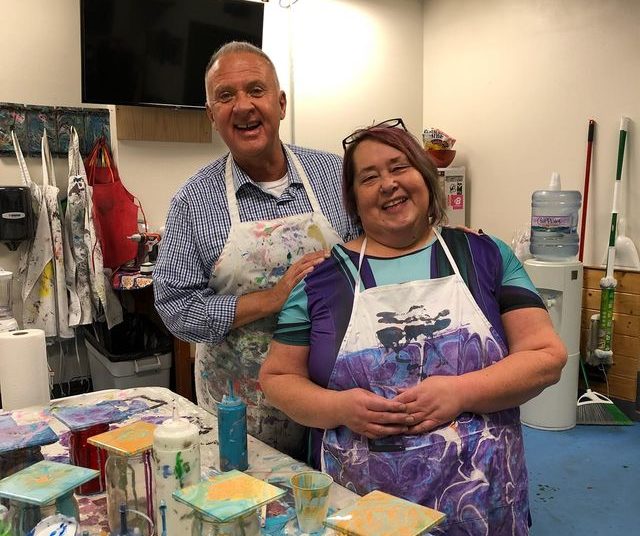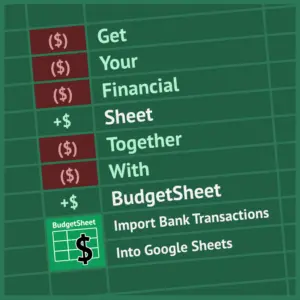Have you ever considered adding a new revenue stream? In person events and workshops are a great way to diversify revenue streams. For many artisans, it also breaks up the monotony of producing products. There are many ways to sell events and workshops, and one of them is Airbnb experiences. Have you explored it yet?
It may feel a bit strange to see writing about Airbnb. Especially if you are not familiar with experiences. Eight years ago their experiences features were launched. If you missed it, you are not alone. Experiences has not been closely integrated into the core Airbnb product. After the initial launch, marketing is primarily organic and word of mouth. So what are experiences? Per Airbnb, “Launched in 2016, Airbnb Experiences are unique, memorable activities designed and hosted by locals that go beyond typical tours or workshops. They provide deep insights and immersion into the hosts’ passions and interests, and a different way to experience a destination.” (https://news.airbnb.com/enjoy-the-magic-of-airbnb-experiences-from-the-comfort-of-your-home)
Airbnb offers two different types of experiences- in person and online. Online experiences were launched during the pandemic, and are still available. The key is that the experiences are small, and hosted by locals. Airbnb takes a commission of 20% of the revenue for experiences. There are no listing fees, which minimizes risk for you.

There are also no allowed minimum size requirements for a group. If a single person booked an experience, you are still obligated to host the experience. More details on Airbnb experience requirements can be found here on their website. It’s a clear layout for the guidelines on creating experiences on the platform.
I was an early adopter of the Airbnb platform for stays. I started using the platform to break up the monotony of the hotel experience. I’ve used the Airbnb platform as a consumer for 10 years and experiences for 3 years. This provides a unique lens with which to evaluate what Airbnb is saying. I can tell you if it rings true with my experiences and observations as a customer. I have not participated as a seller. However I have spoken with a number of sellers that use the platform. For my longtime readers- do you remember the article on the Artisans of Istanbul? This was entirely sourced by booking artisans on the Airbnb experiences platform.
I do not exclusively use the platform to book stays or for travel experiences. But the platform’s ease of use has always kept it a contender when I am booking travel. I listened to the second quarter earnings call for Airbnb. I wanted to see what is being said about experiences in addition to what is happening on the main platform. My general observation is that Airbnb is starting to move the business pieces on their chess board in a very interesting way. But it will take time for the strategy to play out. It’s up to you if it makes sense to add your chess piece onto the Airbnb chess board.

Unfortunately Airbnb’s financial reporting does not break out Nights booked versus Experiences booked. The two metrics are reported together. It’s it impossible to see if the company’s growth is coming from Nights or Experiences or both. Here are three key takeaways from that earnings call:
Takeaway 1: Standardized Playbook in coming to several more countries
Airbnb as a platform is available in many countries. However, their presence is of course larger in some countries than others. The company has a standardized playbook that is rolled out in some countries. Airbnb is rolling out their standardized global playbook for bookings in several more countries.
Airbnb shared in their earnings call: “what you’ll see in Q3 is that we will be layering on a handful of incremental markets that we will be targeting and effectively turning on our global playbook. In particular, you’ll see us try or intend to extend our success that we’ve seen in Latin American countries, like Brazil and Mexico, to other markets in that region, places like Peru, Colombia, Chile, Argentina, so there’ll be some layering-on of those incremental markets.”
If you are in Peru, Colombia, Chile, or Argentina- this is a good time to revisit and see if adding experiences makes sense for you. A more standardized playbook on the housing side should also benefit experiences. It strengthens the overall offerings on the platform.
Takeaway 2: Airbnb is working to become a travel concierge
There were a number of interesting points about AI during their call. There is a substantial amount of hype about AI. It is still difficult to tell what is hype and what is real. From what Airbnb is saying, the deeper promise of AI is not yet fulfilled. There is also recognition that we are years away from truly having AI applications built.
“All of our paradigms are pre-AI paradigms. And so, what we need to do is we need to actually develop AI applications that are native to the models. No one has done this yet.”
“So, that’s one of the things that we’re working on, and I do think Airbnb will eventually be much more than a search box, where you type a destination, add dates and find a listing, it’s going to be much more of a travel concierge, that’s having a conversation, learning, adapting to you. It’s going to take a number of years to develop this. And so, it won’t be in the next year that this will happen, and I think this is probably what most of my tech friends are also saying is, it’s going to just take a bit more time.”
AI is definitely being deployed in a number of companies across all industries. This is an interesting position for Airbnb and unique from what I heard said about AI thus far in our industry. Without a technical background this might sound like meaningless word salad. Here is what stood out in my initial observation. In many companies, the initial applications of AI are aimed at reducing staff. For example, more AI bots or AI reviews of listings on marketplaces. Does this sound familiar?
This call was not talking about how they replace staff. They are talking about how to use AI to create the next generation of applications. Airbnb is not talking about the technology in the same ways other companies are. The few comments they made are worth following to see what they actually build. It’s certainly not a guarantee that AI is not being deployed for bots or other staffing efficiencies. but is a development worth monitoring.
Why is this interesting to me? Speaking from my own personal experiences, in some markets a consumer is already able to plan much of their trip using a combination of Airbnb and experiences. I’ve personally done this in the US, Portugal, Turkey, and Spain in the last several years. However, it is a very manual process of searching, highlighting and booking all the individual items. It feels very old school and kind of clunky. I can’t really store any preferences for experiences either.
I can see how a next generation application will be needed. For example, It could learn I like hands-on artisan experiences and food tours. While this application is years away, this looks like a logical next generation product for Airbnb that could be beneficial for artisans as it relates to experiences. Again, not here today, but is on the horizon in the next few years.

Takeaway 3: Experiences is getting more focus from Airbnb
This is the one to care about! Next generation AI applications will naturally need better information. It makes sense that Airbnb is looking to enhance offerings on the experiences part of the platform. A stronger experiences offering would serve to enhance these new applications.
In the call, Airbnb outlined what they want and are promoting on the platform. The level of directness and candor was a little surprising, but appreciated. Here is what they shared about the 5 things they are looking to do with experiences:
“The first thing is we want them to be a better price selection. Right now, we think we can have – we can offer more affordable experiences that younger people, especially Gen Z, could afford. So, that’s the first thing. We don’t really have enough affordable listings.
The second thing is we need more unique inventory. It’s really good. The inventory we have is good. In fact, the five-star rating average for experiences is higher than the five-star rating for homes. But we still think we can have even more unique inventory that you could only find at Airbnb, that’s not on another platform, and we want to recruit some of the most interesting people in the world to be on our platform, and we’re getting a lot of excitement.
The third is we think we can even merchandise them better. I think experiences, you see moments like with film, with movie, with video. Imagine deciding on a movie, but instead of a film trailer, you had movie stills. Would you go see the movie? You probably wouldn’t. So, you need a trailer. You need video. Experiences should be sold video first.
The fourth is it needs to be discoverable in the app. Right now, experiences are hard to find, because over the last four years, we’ve really focused on – prioritized in our core business. I mean, a lot of people that come to our homepage, they don’t ever see experiences. You wouldn’t know we sell experiences. So, we’re going to completely reimagine our search and discovery engine to cross-sell experiences after you book a home and to really target the right homes. We’re going to show you other guests on the experience to provide social proof. We’re going to bring some of the magic like the Countdown and the Icons and some of the magic there.
And the final thing is, awareness for experience is really low. Most people don’t know we offer experiences, even though, we launched them eight years ago. So, we’re going to actually market them and tell the world about them, and we can do this without a lot of incremental investment, because we can market homes and experiences in the same ad. So, if we do those five things, I think we can dramatically change the trajectory of our experiences business.”
What stood out to me is the comment about unique experiences. Now feel free to call me biased- but seriously who is more interesting than artisans? If you think about the love and craft in what we do, seeing this development is encouraging.
In the end, these are interesting developments for the Airbnb platform. As a pragmatist, it is also going to take time for these developments to be incorporated into the platform. What is clear is that Airbnb is working to add experiences in after a core Airbnb stay is reserved. This development alone is a very big change from how the platform previously worked.
If you have not yet considered selling on Airbnb experiences, it is worth assessing if this is a fit for you in 2025. It is especially good to assess this if you already have courses or event you host. These are easier to adapt to experiences. Each business is different- some experiences may not have the margin to have it make sense to be on the platform given the 20% commission. It’s worthwhile to take another look to see if this makes sense for your business as we weather the ups and downs of our current economic cycle.
Quotes from the conference call can be found as part of the earnings call transcript here.






